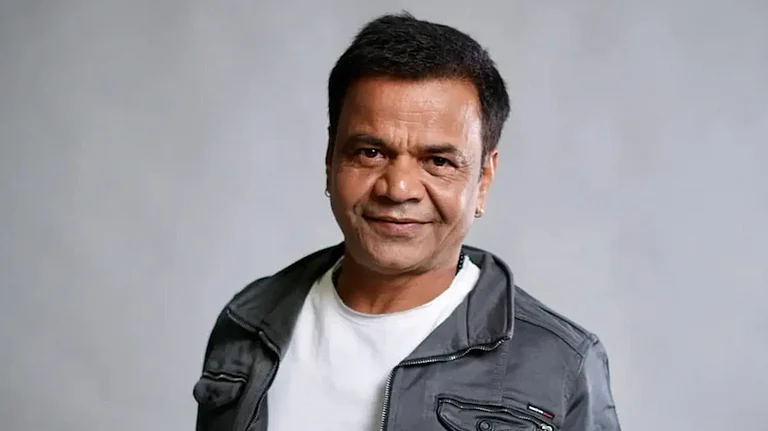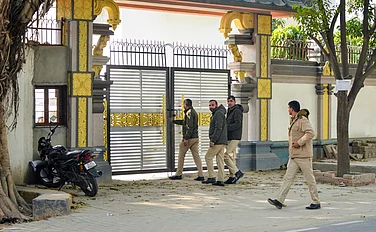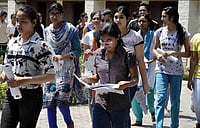Sikkim, the only organic state of India, beckons domestic and international tourists in hordes, particularly during the summer months. Situated in the northeastern part of the country, this state is known for its ecological diversity, waterfalls, lakes, hills and religious places.
However, despite these attractions, this mountain state flanked by three countries (the Tibet Autonomous Region of China in the north and the northeast, Bhutan in the east and Nepal in the west) often falls short on tourist expectations.
And this can squarely be attributed to the permit norms applicable to the state. While on one hand, some tourists allege that these norms are mere paper formalities that are often manipulated by crafty tour/vehicle operators to overcharge them (especially because scrutiny at checkpoints is loose), others rue about the fact that these permits make it difficult to visit many popular tourist attractions.
The state’s dependence on West Bengal for rail and air connectivity further complicates the matters. While travelling from Bagdogra Airport or New Jalpaiguri Railway Station, tourists frequently encounter tour operators who allegedly trap them with lucrative promises of good hotels and cabs that can take them to all the neighbouring tourist destinations at their time and convenience.
Tourists allege that these operators take a bulk of the payment in advance and after transporting them to Gangtok, offer extremely low budget or unhygienic places to stay. Even the cab services are erratic.
A senior official from Sikkim Police, who is not authorised to speak to the Press, says that many a time tourists get into disputes with tour operators who consequently dump them on the roadside and run away.
“Since they are registered in West Bengal, we can’t do anything. We have written several times to the Bengal government to take action, but no action has been taken,” he informs. This official reiterates that Sikkim tourism is tarnished because of these unscrupulous tour operators from West Bengal.
Goutam Deb, Tourism Minister, West Bengal denies the allegations on his part. “We have taken action against many tour operators. A police post has been created at the New Jalpaiguri railway station. We regularly hold meetings with operators so that tourists don’t suffer,” Deb asserts.
Though the Sikkim police have taken action in some cases, it hasn’t translated to a strong enough deterrent and such instances continue.
Many tourists also say that although the Sikkim police encourages them to lodge FIRs against the tour operators, they don’t really go throught with the move as they want to avoid getting embroiled in legal issues, especially when on a vacation.
Moreover, certain curbs on the movement of vehicles in Sikkim also add to the confusion as these curbs too are manipulated by the tour operators.
For instance, Sikkim doesn’t allow commercial vehicles from other states to operate at its tourist destinations. Besides, tourist places close to the Indo-China border in Sikkim require cab operators to apply for a permit.
Tsomgo Lake, Baba Harbhajan Singh Temple and Nathula Pass in East Sikkim and Lachung, Lachen, Gurudongmar lake etc in North Sikkim fall under protected areas for which a tourist requires a permit.
Sanjeev Singh, who came to Gangtok with his family from Rajasthan, alleged that his taxi driver charged Rs 6000 to take him to all three places but skipped Nathula saying that the area was closed due to bad weather conditions.
“Ironically, my other friends, who had been visiting Sikkim at the same time visited Nathula the same day after paying Rs 16,000 to a tour operator,” Singh informs.
Although the state government has fixed cab fares for daily trips, instances of overcharging are rampant in the peak season.
While the Indian Army issues a permit for Nathula Pass, a trading border post between India and China, the Sikkim police is the permit-issuing authority for other protected areas.
The police official, quoted above, informs, “Only commercial vehicles of Sikkim or private vehicles of other states are issued a permit for Baba Temple and Tsomgo Lake from 5 am to 9 am and there is no cap on a number of daily permits. They have to cross the check post before 11.” He adds that there is no fee for issuing a permit.
“Unfortunately taxi drivers extract money from tourists on the pretext of a permit,” he adds.
Interestingly, while the permit for Nathula is capped at 75 vehicles (each day) the applications are over 800 (daily) during the peak holiday months of May and June.
“Tour operators try and make the most of this situation,” the officer admits.
Besides overcharging, many tourists also allege that permits are mere paper formalities and have nothing to do with security. Incidentally, security is the overriding objective through which state and central governments justify permit norms.
“My tour operator took the Aadhar Cards and passport sized photos of all my four family members and got a permit issued for Tsomgo Lake and Baba Harbhajan Singh Temple. When we reached the checkpoint, the police constable didn’t bother to match the photos with our faces. He was just collecting the permit papers from the cab drivers,” alleged another tourist requesting anonymity. “I have visited Indo-Pak border at Wagah where no permit is required,” he pointed.
SC Gupta, additional secretary with the state government, admits that high demand and the limited supply is causing this menace of overcharging.
However, he justifies the permit restrictions for domestic tourists saying that bordering areas of Arunachal Pradesh and Manipur too have permit conditions owing to their geographical sensitivity.
“Unless the Union Ministry of Home Affairs takes a decision to relax the permit conditions, there is no question of relaxing it,” adds Gupta. He also says that after the 2017 Doklam standoff, this area has become more sensitive.
“The carrying capacity of these hilly tourist destinations is also one of the concerns. It might sound an unpopular move from a tourist point of view but we will have to think of restricting the daily permit limit for Tsomgo Lake and Baba Harbhajan Singh Temple,” says Gupta.
State government’s data suggest that in 2017, over 14 lakh tourists visited the state, which shows over 75 percent increase from 2016.
Last year, the Union Home Ministry along with the Union Defence Ministry and the state governments of Sikkim and Arunachal Pradesh had deliberated upon relaxing the permit norms for both domestic as well as foreign tourists but no progress have been made till now.
Currently, foreigners have to get an inner line permit to enter the state and they don’t have access to many areas which are open for domestic tourists.




















.jpg?w=200&auto=format%2Ccompress&fit=max)

_550_550.jpg?w=200&auto=format%2Ccompress&fit=max)



